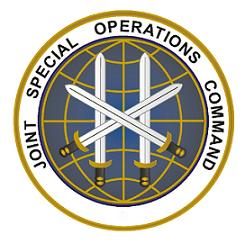"... the U.S. national-security bureaucracy were shocked when President Obama announced the end of the military mission in Iraq by Jan. 1. U.S. military planners had assumed that some intelligence missions would still be run from U.S. bases in Iraq into 2012. The new White House policy throws that plan into jeopardy.
Nonetheless, National Security Council spokesman Tommy Vietor said Monday that the United States was negotiating over the future elements of the U.S.-Iraqi military relationship. “As we complete the drawdown, we will continue to have discussions with Iraqi leaders about how best to meet their security needs in a manner that meets our mutual interests,”...
“My sense is that there will be some discussions about what can be given the CIA and whether some of the counterterrorism arrangements that exist today can be negotiated through a separate and secret channel,” said Marisa Cochrane Sullivan, managing director of the Institute for the Study of War, a think tank with close ties to Petraeus and the military’s new generation of counterinsurgency specialists.
While the CIA can pick up some of the slack for the departing military, another possibility is U.S. allies in the region. The United States is in talks with Kuwait about moving some equipment and troops there, said U.S. diplomats who spoke on the condition of anonymity.
Jasem al-Budaiwi, the deputy chief of mission for Kuwait’s embassy in Washington, declined to comment directly on the substance of the negotiations....
The United States is also in discussions with Turkey about pre-positioning sensitive sensors, drones, and other equipment used in Iraq at the Incirlik airbase, which hosted a U.S. Air Force mission in the 1990s to monitor northern Iraq...
For now, a major issue for the military and U.S. intelligence community is retaining some of the capabilities of the Intelligence, Surveillance, and Reconnaissance (ISR) programs run out of Iraq when these cannot be launched from bases inside the country...
“We could run ISR collection activities out of Turkey and Kuwait, but the real problem is we have a lot of collection targets in Iraq,” said a senior U.S. intelligence official familiar with the details of negotiations over the programs. “We need to know what is going on all over Iraq, or at least in critical nodes.”
Such areas, the official said, include Anbar, the western Iraqi desert that produced al Qaeda in Iraq; Basra, Iraq’s second-largest city, which remains a hub for Iran’s Revolutionary Guard corps and other Shiite militias; and Najaf, the Muslim holy city that hosts the most prestigious seminary for Shiite theologians, known as the Hawza.“We especially need to establish deep collection on the Najaf Hawza if and when [Grand Ayatollah Ali] Sistani goes belly up. We need to know who is going to replace him,” the official said.
Often through military channels to local militias and other groups, U.S. forces in Iraq also ran intelligence programs against Iran and Syria. In some cases, U.S. operations in those countries went beyond intelligence collection. In October 2008, U.S. special forces raided a compound in Sukkariyeh, Syria, a town just over the border from Iraq, to target an al Qaeda in Iraq planner named Badran Turki Hishan al-Mazidih, also known as Abu Ghadiya..."
"'America is something that can be easily moved. Moved to the right direction.They won’t get in our way'" Benjamin Netanyahu
Tuesday, October 25, 2011
US hoping to preserve some part of the US-Iraqi relationship "through a separate & secret channel"
Subscribe to:
Post Comments (Atom)

No comments:
Post a Comment